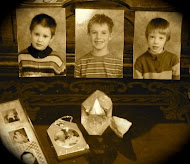recanted
Globe & Mail
Jun 9, 2006
Page: A2
Byline: KIRK MAKIN
The Ontario government is seeking to reopen a major Court of
Appeal case involving special treatment for autistic children,
claiming that an expert witness has undergone a dramatic change
of heart about costs associated with treatment.
With the appeal court expected to release its decision in the
case at any time, the highly unusual motion to introduce fresh
evidence is being vigorously opposed by lawyers for the litigants:
two dozen parents of autistic children.
The fresh evidence involves a recently published journal article
in which health economist Peter Coyte calculated a scenario
under which the province could actually lose several million
dollars by extending ABA/IBI treatment to all autistic children
two to five years old.
It contrasted sharply with Dr. Coyte's trial evidence, where
he forecast a profit of as much as $172-million based on savings
the province could realize because children who receive treatment
would no longer need certain other services.
"They wanted to just pop this into the Court of Appeal," said
Mary Eberts, a lawyer for the parents. "But we said, 'No, you
have to make sure it meets the tests for fresh evidence.' "
The key test for fresh evidence focuses on the relevance of
the information and whether it could have been obtained earlier
through due diligence. Ms. Eberts hotly disputed the Crown's
claim that it came to light only a few weeks ago, when the journal
article was published.
In a legal brief, Ms. Eberts said that while the journal article
is new, the Crown could have obtained the figures in it as far
back as 2004, had it shown the interest and diligence.
The fracas is the latest in a long and fiercely contested case
that culminated in a 2005 ruling by Madam Justice Frances Kiteley
of the Ontario Superior Court, stating that Ontario had violated
the constitutional rights and "human dignity" of autistic
schoolchildren
by denying them treatment they desperately need to cope and
thrive.
During the trial, Dr. Coyte favoured a cost estimate that the
province would save about $172-million over all. He revised
this figure to $40-million for his article, then dropped it
even more at the request of two of four experts who conducted
a peer review.
Ms. Eberts said the Crown lawyers jumped on the most conservative
estimate in the journal article. "In effect, the Crown is trying
to impeach Dr. Coyte's evidence at trial by relying on anonymous
comments made by persons whose qualifications we do not know,
and who cannot be cross-examined," her brief said.
Besides that, Ms. Eberts said that Judge Kiteley viewed cost
estimates as not particularly relevant in the case.
However, in written legal arguments, Crown lawyers Robert Charney
and Sarah Kraicer argue that the new figures amount to a concession
by Dr. Coyte that his earlier estimates were flawed. They stress
that two of the peer-review teams described Dr. Coyte's initial
calculations as "premature and misleading," since little is
definitively known about the effectiveness of ABA/IBI
therapy.
The court has agreed to hear arguments soon on whether to admit
the fresh evidence.
During the trial, Judge Kiteley admonished the Crown more than
once for not disclosing relevant evidence. On one occasion,
she even ordered the province to pay the plaintiffs several
thousand dollars to defray the extra legal costs its delays
had caused them.
In the ruling that is under appeal, Judge Kiteley awarded the
litigants damages running into the millions of dollars for past
and future treatment.

















No comments:
Post a Comment